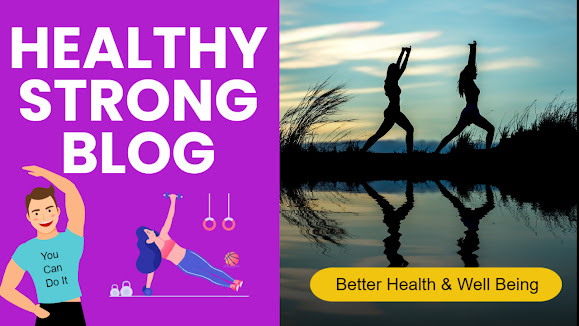Proven Ways Reading Can Boost Your Health
Health Benefits of Reading
Reading is one of the greatest things you can do for your
health, both physically and mentally. Not only do you get a boost in your
vocabulary and writing skills, but you also have a reduced risk of dementia and
mental well-being.
Mental Well-Being
The act of reading can have an enormous effect on your
mental well-being. It has been proven to decrease stress and improve your
general health.
Reading can improve your memory, and slow down the signs
of aging. It also allows you to better understand how other people feel. This
is important for building relationships and social interactions. A growing body
of research suggests that reading may help prevent or alleviate certain forms
of depression.
Reading also helps you build your emotional intelligence
and develop problem-solving skills. Fiction is particularly effective in
improving these traits.
Having a bedtime routine is also beneficial to your
mental well-being. A consistent sleep schedule can aid in preventing insomnia.
Improved Writing Skills
The health benefits of reading include improving writing
skills. Writing is a process that requires a combination of grammar, memory,
and critical thinking. Improved writing skills can help you become better
communicators, and can also improve your job prospects.
For primary grades, writing is an integral part of
instruction. In this age group, students will write in a variety of genres.
Research has found that teaching writing improves writing quality and
productivity. Several studies examined the effects of a multi-component
instructional approach to improve writing skills. This type of instructional
approach involves teaching grammar and spelling, as well as text structure
knowledge. However, the impact of this instruction is inconsistent.
Longevity
The longevity benefits of reading may have been the most
exciting discovery of 2012. According to a study published in the journal of
Health and Retirement, books may help you live longer. This new study analyzed
data from 3,635 people over 50 and found that book readers are more likely to
survive than non-readers.
Those who read more than three and a half hours a week
were 23 percent less likely to die than those who do not read. However, the
survival benefit of reading books was not only significant, but it was robust
when stratified by education, wealth, and health status.
Books can have a variety of physical, psychological, and
mental health benefits. For instance, reading helps develop cognitive abilities
and improves memory. It also exposes readers to new places and people.
Reduced Risk of Dementia
Reading for pleasure and intellectual activities are
known to reduce the risk of dementia. They also have other benefits, such as
helping you improve your memory and reduce the stress in your life. These
activities also help you connect with others.
A study in JAMA Psychiatry(*) found that regular reading
can improve memory and decrease the risk of dementia. It analyzed the health
information of 501,376 participants. The researchers found that intellectual
activities, such as reading, can be effective for everyone, regardless of age
or socioeconomic status.
Regular physical activity can also reduce the risk of
dementia. It improves brain circulation and strengthens connections in the
brain. Exercise also has beneficial effects on weight and heart health.
Improved Vocabulary
Reading is a great way to improve your vocabulary. By
improving your vocabulary, you will be able to communicate better with others,
and you will be able to perform better in school and in your job.
It is important to remember that reading is not a
one-time event. Rather, it requires a constant effort from your part. The more
you read, the more words your brain will have to make sense of.
Aside from reading, there are other ways to improve your
vocabulary. One of the most effective methods is to read challenging
literature. Not only will this enhance your lexicon, but it will also boost
your ego and make you more sociable.
Stress Management
Reading is one of the best ways to combat stress.
Research shows that reading improves mental health, reduces stress, and
increases empathy. It can be fun and reading a book or magazine about your
favorite hobbies or interests can be a great way to relax and unwind.
The number of people who read has been on the rise. Publishers Weekly reported that sales of books reached 322 million in the first half of 2020. Some people find the act of reading to be more relaxing than watching a movie or playing a video game.
A study from the University of Sussex found that reading
a book is a good stress-reducing exercise. In particular, the prefrontal cortex
areas of the brain are stimulated. This means reading is similar to meditation
and helps distract the brain from stressful thoughts.
* JAMA Psychiatry is a peer-reviewed medical journal published by the American Medical Association. It focuses on topics related to psychiatry, mental health, and behavioral sciences. The journal publishes research articles, reviews, editorials, and other content related to these topics. It is an important source of information for psychiatrists, psychologists, and other mental health professionals.
5 Benefits for both mental and physical health include:
1. Improving cognitive function: Reading can help improve memory, increase attention to detail, and expand your vocabulary and language skills.
2. Reducing
stress: Reading has been shown to reduce stress levels by helping you relax and
escape from the daily grind.
3. Promoting
empathy: Reading can help you understand and connect with characters in a book,
which can in turn improve your ability to understand and connect with others in
your life.
4. Enhancing
sleep: Reading before bed can help you relax and wind down, which can lead to
better sleep.
5. Increasing
knowledge: Reading allows you to learn about a wide range of subjects, which
can help you become more knowledgeable and well-rounded.



.jpg)







Comments
Post a Comment